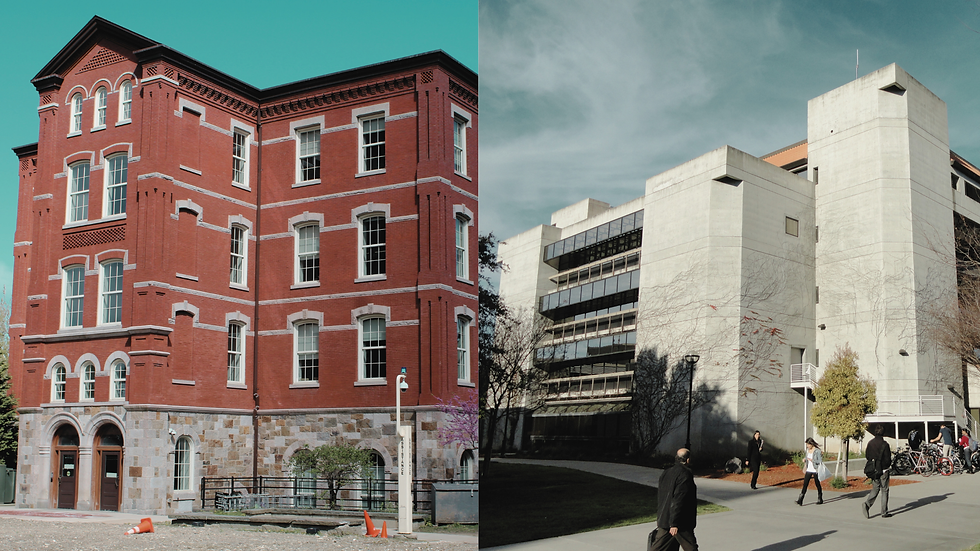Academic Freedom, Diversity, and Equity at Risk in Florida
- Dolunay Bulut
- Feb 14, 2023
- 3 min read
Updated: Feb 26, 2023

Photo credit: Vanity Fair
As the nationwide debates on the place of politically controversial subjects in public education such as Critical Race Theory (CRT) and Gender and Sexuality Studies escalate, the republican government of Florida has stepped up to restructure state universities in line with its conservative agenda. On February 7, 2023, Florida’s republican governor Ron DeSantis announced plans to defund diversity, equity, and inclusion (DEI) initiatives across the state, threatening academic freedom and autonomy of higher education. During his public announcement of higher education reform, DeSantis targeted DEI programs as a tool of ideological indoctrination and enemy of higher education.
DeSantis put his government’s plan in force by a hostile takeover of the administration of New College of Florida. As a part of his commitment to “eliminate political ideology from public higher education,” DeSantis has appointed six members to the college’s Board of Trustees, who at their first meeting voted to oust Dr. Patricia Okker, professor of American literature and the president of New College since July 2021, and appointed Richard Corcoran, the state’s former commissioner of education, as the new president.
DeSantis-led conservative political circles consider universities as domains of indoctrination, which should be freed from so-called radical left-wing orthodoxy. The government's plan was inspired by the model legislation proposed for conservative state lawmakers to bypass or completely end DEI programs at public universities. The model was released by the Manhattan Institute for Policy Research, a conservative American think-tank focused on domestic policy, and offers “a playbook for state legislators to abolish DEI bureaucracies and restore colorblind equality in public universities,” according to Chris Rufo, a fellow at the Institute and one of the six New College Board of Trustees members. The model legislation proposes “to abolish DEI bureaucracies; to end mandatory diversity training; to curtail ‘political coercion’;” and to eliminate identity-based preferences. DEI regulations are considered by conservatives as subsidization of “racialist ideology, bureaucratic capture, and the destruction of their public academies.”
DeSantis’s reform plan is expected to raise legal controversy on the federal level concerning academic freedom and equal, democratic participation. As a part of this hostile takeover, on the first day of Black History Month, the College Board released the revised and approved version of an SAT Advanced Placement (AP) course in African American History. The revised version deleted many prominent scholars and philosophers of CRT, including but not limited to Kimberlé Crenshaw (legal scholar), Angela Davis (philosopher and activist), Alice Walker (author of The Color Purple and other novels), and Bell Hooks (philosopher). Moreover, the sections about the Black Lives Matter (BLM) movement and Black Queer Studies were also taken out. The proposal also introduces a mandatory ‘Western Civilization’ course in all colleges and universities, which is expected to be discussed in March when state lawmakers convene.
Endangered Scholars Worldwide condemns DeSantis government’s conservative, anti-democratic, exclusionary agenda for higher education in Florida. We at the ESW join the American Council of Learned Societies (ACLS) in support of Dr. Okker, the New College community, faculty, and students at higher education institutions that are facing similar challenges and restrictions. ESW is deeply concerned with the long-term implications of this appropriation of public universities as ideological state apparatuses that risk the future of informed debate, critical thinking, and free and democratic production and transmission of scholarly knowledge. The Florida government’s acts set up a precedent for other republican governments who have adapted anti-DIE rhetoric to their campaigns. Academic freedom is a specific form of freedom of speech, which is protected by the First Amendment of the US Constitution. We believe this legislation and related institutional changes not only pose a great danger to the future of democratic, equitable, and inclusionary education in the state of Florida, but also it would challenge the constitutionally protected freedom of speech.




